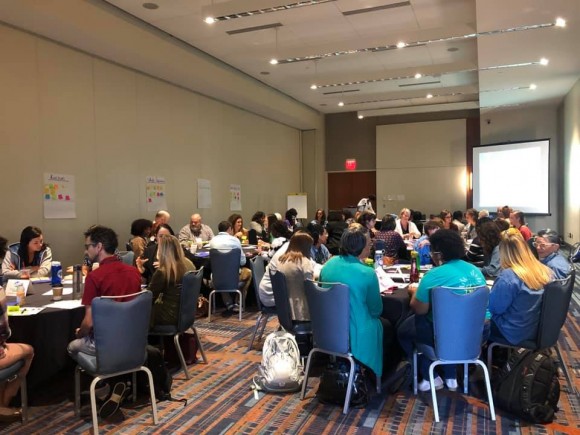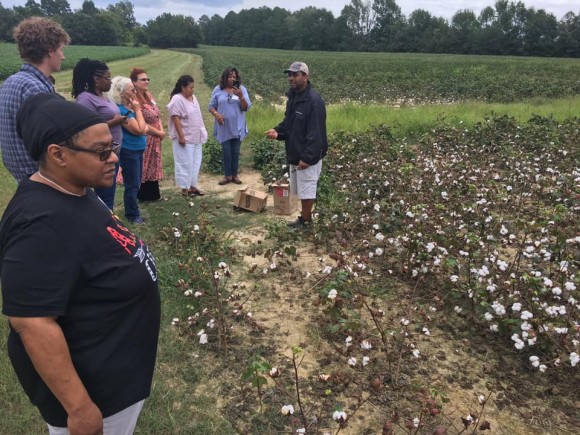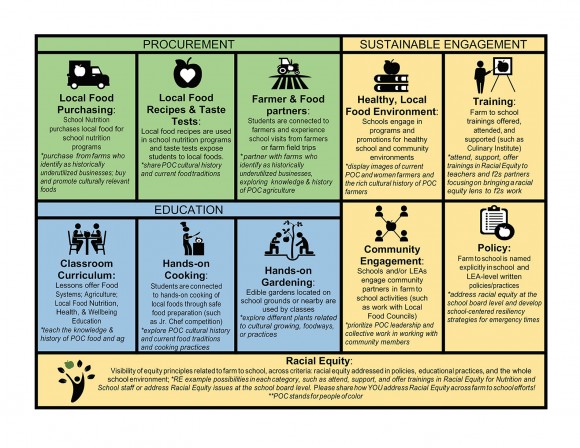Outstanding
An overall assessment by the review team based on commitment to diverse stakeholders, a comprehensive and wholistic approach, innovative use of resources, innovative activities, the ability to share out learned lessons, and ability to serve as a vocal champion of farm to school.
Durham Public Schools
Applying a Racial Equity lens is important to our work in Farm to School, because we want to make sure that we are: supporting our local POC farmers so that their businesses can thrive, honoring Durham's agricultural history which has strong roots with POC farmers, and respecting the traditions and cultures of the students we are teaching.
Asheville City Schools
On top of the dedication to purchasing as much local as possible, as consistently as possible, ACS is dedicated to communicating that out, with their own students and staff and parents and beyond. They have a regular social media campaign, changing signage, and large displays that keep a constant message of tying local food to health. Gardens and cooking are visible parts of schools and compostable trays and a district wide composting pick up both teaches students environmentally responsible practices, but also makes a difference in the district footprint. Across the curriculum students are taught the connections between healthy bodies and minds and a healthy life style for communities. ACS has a three-year partnership with Integrated Comprehensive System (ICS) for Equity, a consulting group that is addressing root causes and educational needs around inequities in schools.


